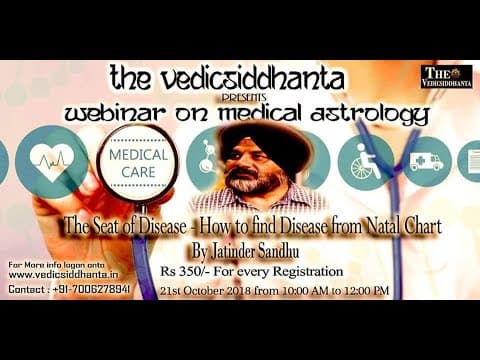Vedic astrology is an ancient science that has been used for centuries to understand human experiences, health, and destiny. One of its significant branches is medical astrology, which is the study of the influence of celestial bodies on an individual's health. This article will delve into the intricate details of Vedic astrology rules and their application in diagnosing and understanding diseases.
The Role of Houses in Vedic Astrology
In Vedic astrology, the 12 houses play a crucial role in determining various aspects of an individual's life. Each house represents different areas such as health, wealth, career, and family. Specifically, the connection between the first and eighth houses, and the fifth and tenth houses, is essential for understanding inherited diseases. Inherited diseases are often indicated by these houses as they carry genetic information forward.
The Significance of the Second House
The second house is vital because it is opposite to the sixth house, which is associated with health and diseases. The second house is related to family heritage and the genetic traits inherited from ancestors. This house gives insights into the family health history and genetic predispositions.
The Conception Process in Vedic Astrology
Understanding the conception process is critical in medical astrology. The body begins its formation in the third house, and its destruction is signified by the eighth house. The journey of the soul starts from the first house and ends in the twelfth house, which is considered the final resting place.
The Role of Different Houses in Conception
During conception, the first stage is the union of sperm and ovum, known as Kilala. This stage is related to the second house. The second stage, known as Angkara, is associated with the ninth house and planet Jupiter. The ninth house is also considered the womb. The entire process of pregnancy is mapped around the horoscope, with the child’s birth seen from the fifth house.
The Journey of the Soul and Body
The soul enters the body through the first house and exits through the eighth house. The second house represents the family and inheritance, while the third house signifies the body’s manifestation. The ninth house is associated with the womb, and the fifth house indicates childbirth. The moon, which governs the ninth month of pregnancy, represents the womb and the mother.
The Critical Eighth Month
The eighth month of pregnancy is critical for childbirth. Most pregnancies terminated due to complications occur during this month. The term "Atre" or "Atra" signifies a curse or a problematic eighth month, indicating the importance of this period in pregnancy.
Understanding Diseases through Vedic Astrology
Medical astrology helps in identifying diseases by analyzing the afflicted houses, planets, and their positions. For instance, the sixth lord's position and its association with other planets can indicate specific health issues.
Case Study: Stomach and Kidney Problems
A person with a Sagittarius ascendant having the sixth lord Venus in Libra with Sun and Ketu might experience stomach or kidney problems. The afflicted fifth and sixth houses indicate issues related to the stomach, while the sign Libra and planet Venus are associated with the kidneys.
Case Study: Cancer Diagnosis
Cancer is one of the most challenging diseases to diagnose through astrology. However, the afflicted sixth lord and the presence of malefic planets in significant houses can indicate cancer. The lymphatic system, represented by the moon and the sign Pisces, is crucial in the spread of cancer within the body.
The Role of Benefic and Malefic Planets
In medical astrology, benefic planets in the sixth house can indicate health issues, while malefic planets like Mars can be beneficial in certain positions. The placement of planets like Jupiter can signify the growth of diseases, including cancer.
The Influence of Planets on Health
Each planet governs different aspects of health. For instance, the moon is associated with moisture and digestion, Venus with beauty and skin, and Mercury with the sense of touch. Analyzing these planets' positions and afflictions can provide insights into various health issues.
Medical Astrology in Practice
Medical astrology requires a deep understanding of both astrology and medical knowledge. Astrologers must analyze the afflicted houses, planets, and their associations to diagnose health problems accurately. The responsibility of an astrologer increases manifold when dealing with health issues, as incorrect predictions can be detrimental.
The Importance of Positive Communication
Astrologers must communicate their findings positively and gently, especially when conveying negative information. Highlighting the positive aspects and potential remedies can help individuals cope with their health issues better.
Classical Texts and Modern Perspectives
Classical texts like Brihat Parashara Hora Shastra, Sarvartha Chintamani, and others provide valuable insights into medical astrology. Modern authors have also contributed significantly to this field, offering practical examples and detailed analyses.
Recommended Reading
Books like "Encyclopedia of Medical Astrology" by Cornelius Webster, "Medical Astrology" by Judith Hill, and others are excellent resources for those interested in this field. These books provide detailed information and case studies that can enhance one's understanding of medical astrology.
Conclusion
Vedic astrology offers a unique perspective on health and diseases. By understanding the intricate connections between houses, planets, and their positions, astrologers can diagnose health issues and provide valuable insights. While medical astrology is a complex field, continuous learning and practice can help astrologers make accurate predictions and assist individuals in maintaining their health.
```
















